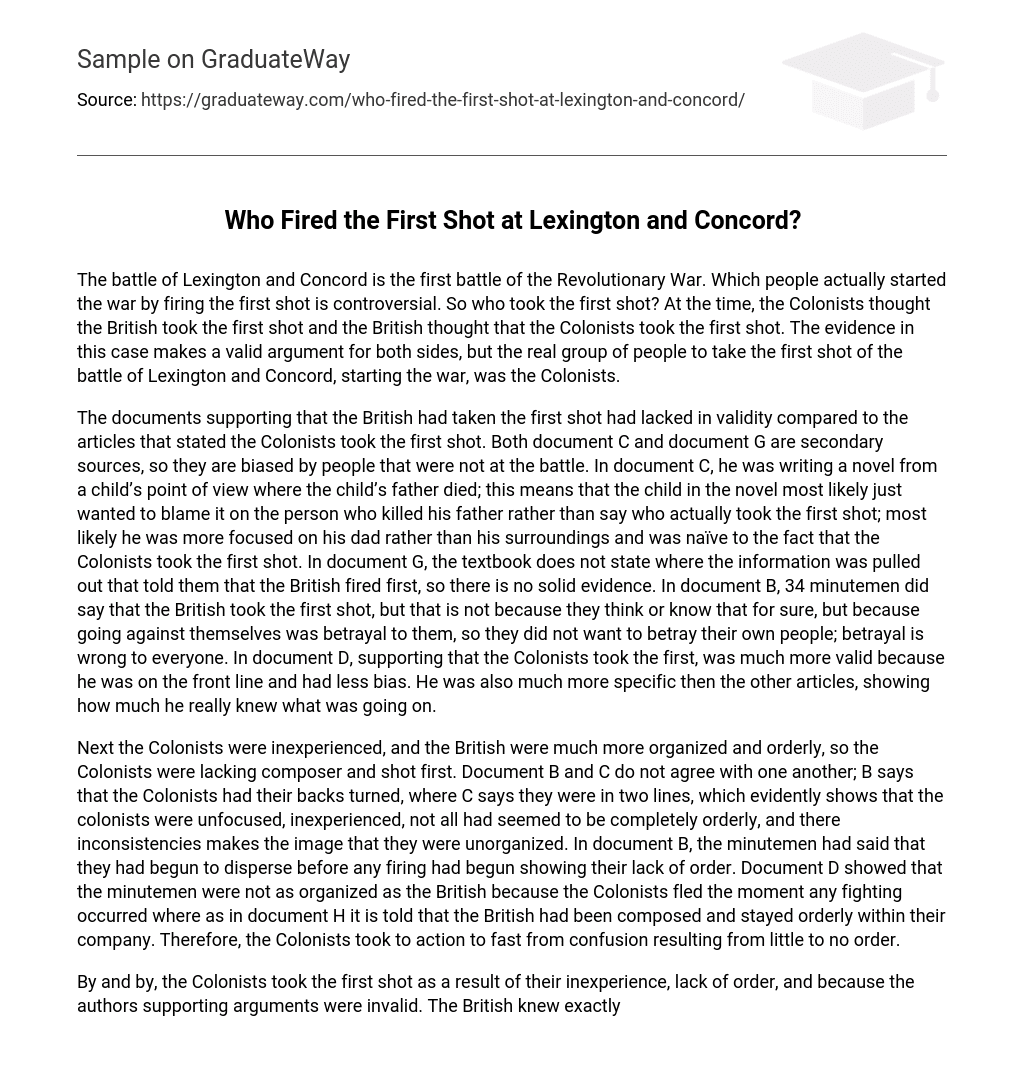The battle of Lexington and Concord marks the onset of the Revolutionary War, with a debate surrounding which party initiated the conflict by firing the first shot. The Colonists believed it was the British, while the British attributed it to the Colonists. The evidence in this case presents valid arguments for both perspectives, but ultimately, it was the Colonists who fired the first shot, thereby initiating the battle and sparking the war.
The evidence supporting the British as the ones who fired the first shot lacks validity compared to articles claiming that the Colonists were responsible. Both document C and document G are biased as they are secondary sources written by individuals not present at the battle. In document C, a novel written from a child’s perspective reveals the child’s desire to blame his father’s death on someone, rather than accurately identifying who fired first. The child’s focus on his father and naivety about his surroundings likely led to a misconception that the Colonists were at fault. Document G, a textbook, lacks clear information about its source for claiming that the British fired first, thus lacking solid evidence. In document B, 34 minutemen did claim that the British took the first shot, but their statement is influenced by their loyalty to their own people and the fear of betrayal. Betrayal is universally condemned. Conversely, document D provides stronger support for the Colonists firing first, as it was written by someone who was on the front line, possessed less bias, and provided greater specificity in describing the events.
The Colonists were inexperienced, lacking composer, and shot first due to the organized and orderly British. However, Document B and C contradict each other; B claims the Colonists had their backs turned while C states they were in two lines. This inconsistency suggests that the colonists were disorganized and unfocused. Document B also reveals that the minutemen started dispersing before any firing, indicating a lack of order. In contrast, Document D shows that the minutemen were not as organized as the British, as they fled at the first signs of fighting. On the other hand, Document H states that the British remained composed and orderly within their company. Consequently, the Colonists acted hastily due to confusion caused by a lack of order.
The Colonists fired the first shot due to their inexperience, lack of order, and unsupported arguments, while the British refrained from doing so because of their ability to follow orders. The Colonists, being more radical and lacking experience, acted impulsively and took the initiative.





